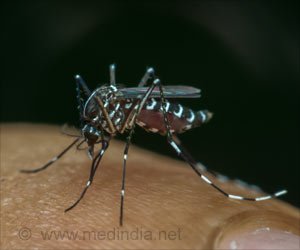How to Reduce Malaria Transmission in Humans?

Liverpool School of Tropical Medicine reanalyzed the original study data that enrolled eight villages in Burkina Faso, which were randomly assigned to receive ivermectin or a control.
All villages received five more doses of ivermectin, once every three weeks in addition to scheduled control of lymphatic filariasis.
The effect of ivermectin on malaria measured in children younger than five years of age shows a notable difference in the presence of malaria between the treatment and control groups.
Advertisement
Following the review of the data from this study published in Cochrane Database of Systematic Reviews, the team summarized that they were uncertain whether community administration of ivermectin influenced malaria transmission.
Dr Joseph Okebe, senior author says, “Unfortunately, it is currently not possible to say if treating an entire community with ivermectin reduces malaria. However, several research studies are in progress and, as such, we anticipate they will provide more answers to this important question in the future”.
Challenges to the use of ivermectin can be the duration of the reproductive cycle in mosquitoes, the mosquito behavior, and the incubation period of malaria parasites in mosquitoes.
Maintaining a high enough ivermectin concentration over several days and weeks to kill any blood feeding, infective, mosquito will be the key to reduce the risk of malaria transmission but may not be sufficient for a sustained impact.
Source: Medindia
Source link
#Reduce #Malaria #Transmission #Humans



